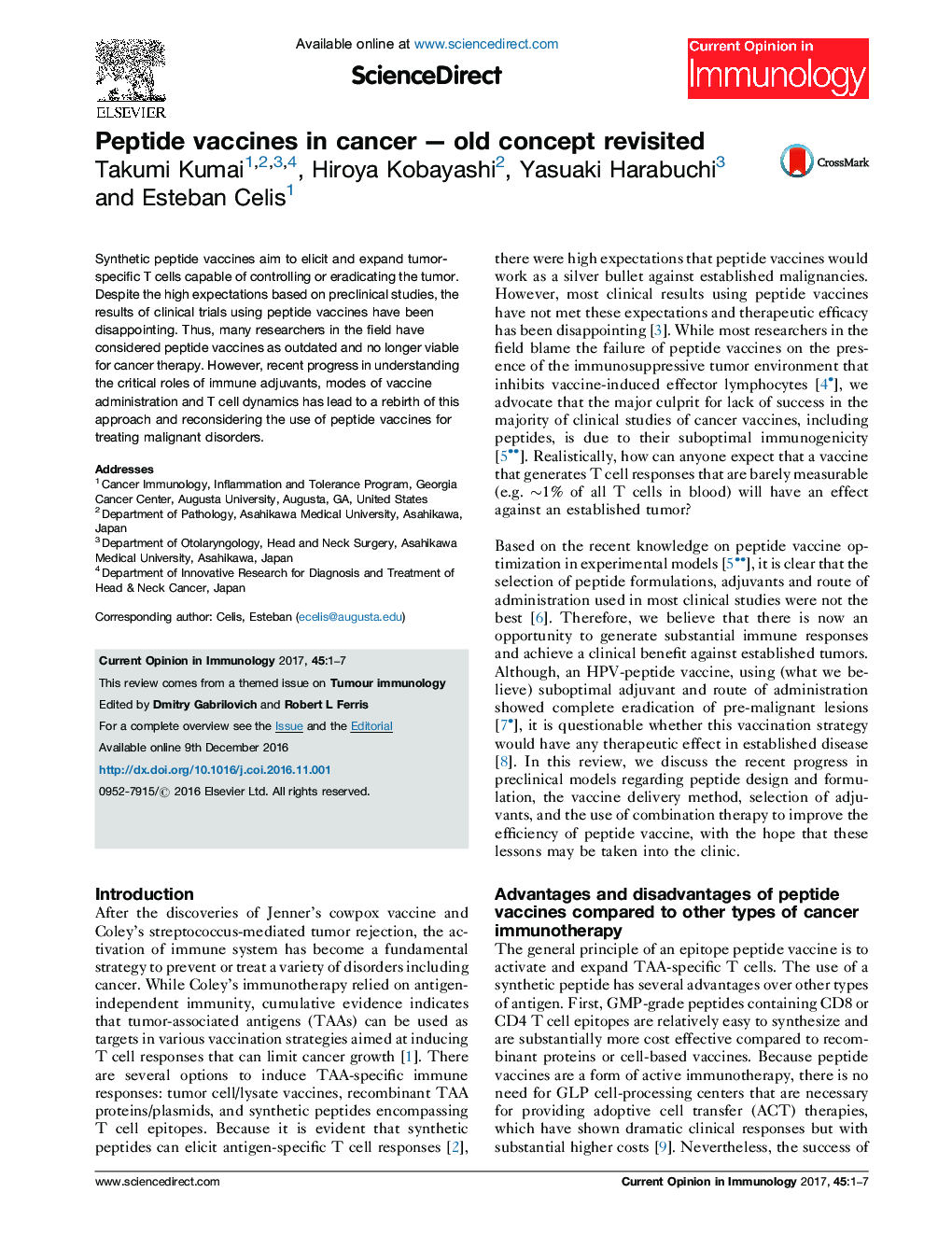| کد مقاله | کد نشریه | سال انتشار | مقاله انگلیسی | نسخه تمام متن |
|---|---|---|---|---|
| 5665698 | 1591296 | 2017 | 7 صفحه PDF | دانلود رایگان |

- The recent findings in basic immunology revisit the use of peptide vaccine for cancer.
- Peptide size, formulation and delivery route are critical for peptide vaccine efficiency.
- Neoantigens from mutated genes are strong candidates for peptide vaccines.
- The selection of appropriate adjuvants is a prerequisite for obtaining robust T responses.
- Peptide vaccines have synergistic effects with checkpoint inhibitors and conventional cancer therapies.
Synthetic peptide vaccines aim to elicit and expand tumor-specific T cells capable of controlling or eradicating the tumor. Despite the high expectations based on preclinical studies, the results of clinical trials using peptide vaccines have been disappointing. Thus, many researchers in the field have considered peptide vaccines as outdated and no longer viable for cancer therapy. However, recent progress in understanding the critical roles of immune adjuvants, modes of vaccine administration and T cell dynamics has lead to a rebirth of this approach and reconsidering the use of peptide vaccines for treating malignant disorders.
Journal: Current Opinion in Immunology - Volume 45, April 2017, Pages 1-7